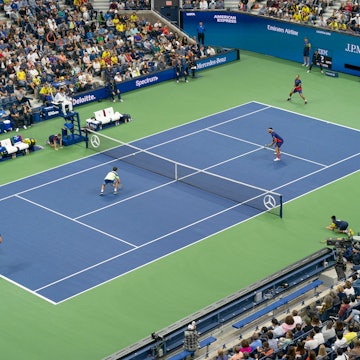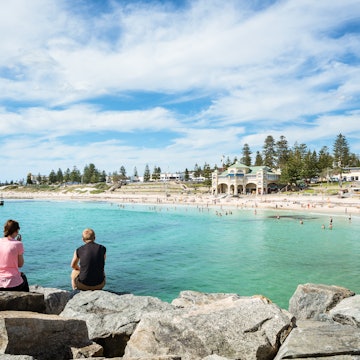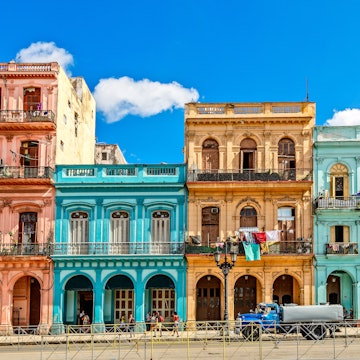
The Red Square and beyond: a guide to Moscow’s neighbourhoods
Apr 23, 2019 • 6 min read
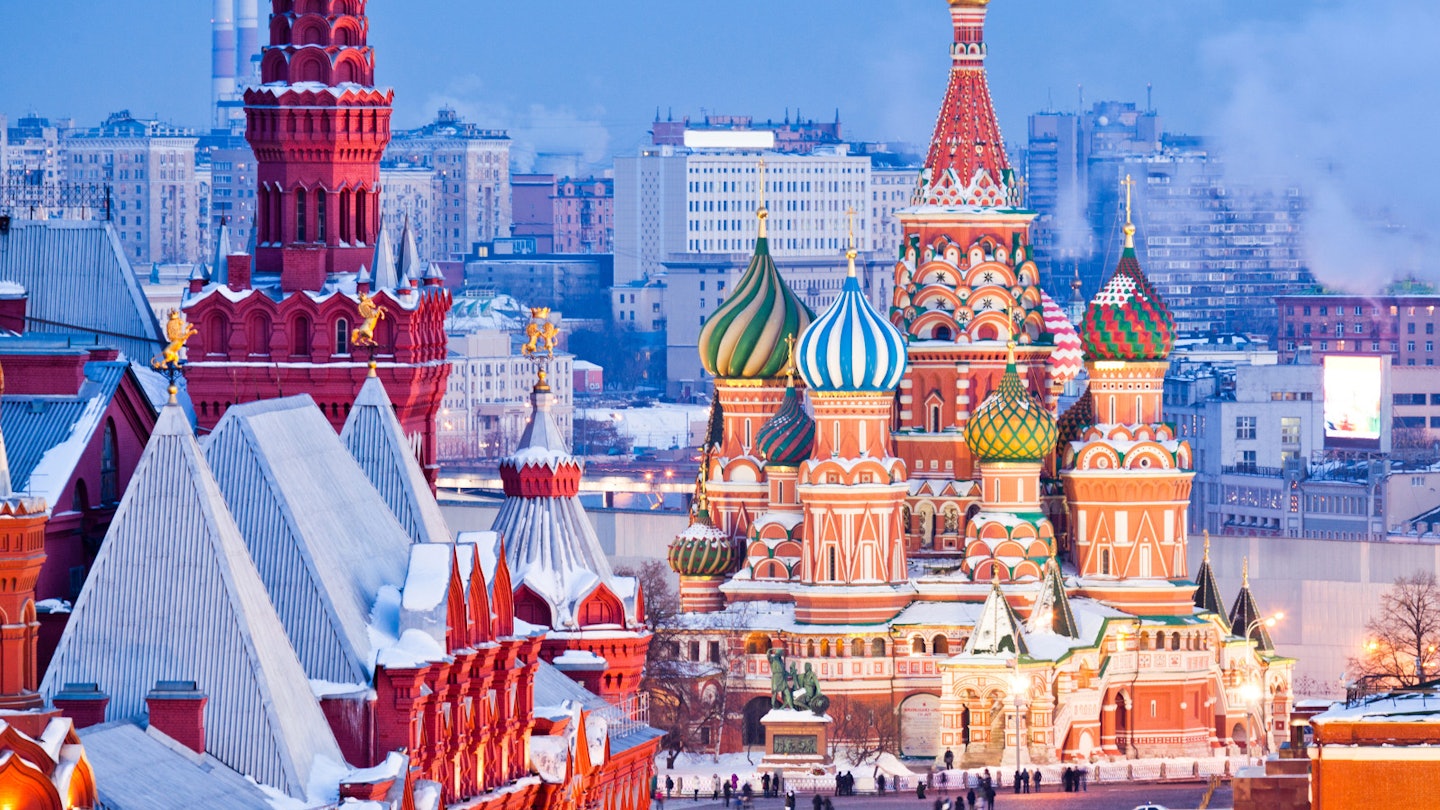
The Red Square, Kremlin and St Basil's Cathedral in Moscow at night © Mordolff / Getty Images
One of the world’s largest cities, Moscow is a true metropolis whose ancient neighbourhoods are interspersed with newly built high-rises, inhabited by people from all over the former Soviet Union.
It’s also the city of rings: the innermost is the Kremlin itself; further away are the former defensive rings, Boulevard Ring and Garden Ring; still further are the Third Ring Road and the MKAD, which delineates the city’s borders. There’s an ongoing joke that Moscow Mayor is the Lord of the Rings. Most sights are contained within the Garden Ring, although for some more authentic neighbourhoods one has to venture further out. To help you explore Moscow’s diversity, we picked our favourite ’hoods – but this list is by no means exhaustive.

The Red Square and around
It can be argued that Moscow, or even the whole of Russia, starts at the Red Square – it’s an absolute must-see for any visitor. After standing in line to check out Lenin’s granite mausoleum, go to GUM, Moscow's oldest department store. Full of luxury shops, it’s famous for the glass roof designed by one of Russia’s most celebrated architects, Vladimir Shukhov. Apart from architectural wonders, GUM has several places to eat including the Soviet-style cafeteria Stolovaya No 57 where you can sample mysterious-sounding delicacies such as the ‘herring in a fur coat’.
On the opposite side of GUM, Kremlin’s walls and towers rise above the Red Square. Walk through the Alexander Garden and past the grotto to the Kremlin’s entrance. It’s a treasure trove for any art and history lover: ancient gold-domed churches, icons galore and the resting place of Moscow tsars.
On the other side of the Red Square is Moscow's symbol, St Basil's Cathedral with its multi-colored domes. Right behind it is the newly built Zaryadye Park, which showcases flora from all over Russia; another attraction is the floating bridge jutting out above the embankment and the Moscow river. A glass pavilion nearby hosts Voskhod, a space-themed restaurant with dishes from all 15 former Soviet Union republics. It’s a perfect spot for a classy evening meal and there’s often live music.

Patriarch’s Ponds
The Patriarch’s Ponds (aka Patriki) is a historical neighbourhood, celebrated in Mikhail Bulgakov’s novel Master and Margarita. Located right off Tverskaya street, Moscow’s main thoroughfare, Patriki recently became the city’s most happening quarter. It has some of the most elegant architecture, including several buildings by art-nouveau genius Fyodor Shekhtel. Narrow streets here have a cozy feel, with recently widened sidewalks and bike lanes. In the summer it becomes party central.
Start by checking out free exhibitions or one of the cutting-edge performances at the experimental theatre Praktika. But make no mistake, the neighbourhood’s main attraction are its bars and restaurants. Patriki’s residents are well-off Russians and expats, so it’s no wonder that Moscow’s recent culinary revolution started here. Uilliam’s, one of the pioneers of this foodie movement, still rules over the scene with its floor-to-ceiling windows. Also try AQ Chicken for everything chicken-related, Patara for a taste of Georgian cuisine, and Cutfish for some great sushi. Finish your gastronomic tour with original cocktails at Pinch or the Moscow outpost of NYC restaurant Saxon+Parole.

Around Kursky train station
For a long time, Kursky train station was surrounded by semi-abandoned factories and the area was best avoided. It all changed in the late 2000s, when a dilapidated wine factory was turned into Winzavod, a mecca for fans of contemporary art. Today these red-brick buildings are occupied by some of Moscow’s leading galleries. After taking in all the art, pop in the small wine bar Barrell for a glass from burgeoning wineries of Russia’s south or grab a bite at Khitrye Lyudi cafe.
Right next to Winzavod is Artplay, another refurbished factory full of design and furniture shops and large exhibition spaces. It’s also home to Pluton, one of the latest additions to Moscow’s dance scene. Other Pluton residents are the multimedia art gallery Proun and another lunch option, Shanhaika, with authentic Chinese cuisine.
A short walk away is Arma, where a cluster of circular gas holders has been turned into offices, restaurants and clubs including Gazgolder (it belongs to one of Russia’s most famous rappers, Basta). Apart from hip-hop concerts, Gazgolder organises regular techno parties that sometimes go non-stop from Friday to Monday.

Taganka
If you’re interested in religious architecture, Taganka is the place to go. First of all, see the old Moscow at Krutitskoye Podvorye – one of those places where nothing seems to have changed in centuries. The monastery was founded in the 13th century, but in the 16th century it became the home of Moscow metropolitans and most of the surviving buildings are from that epoch. Take a tour of the grounds, and don’t miss the interior and icons of the Assumption Cathedral.
Your next stop is the Rogozhskoe settlement of ‘old believers’, a branch that split from Russian Orthodoxy in the 17th century. The settlement is dominated by an 80m-tall bell tower. The yellow-coloured Intercession Church, built in neoclassical style with baroque elements, has an important collection of icons. Next to the church grounds is the popular Trapeznaya cafeteria, with Russian food cooked using traditional recipes – a perfect spot for lunch.
A short ride away is Andronikov Monastery, which today houses the Rublyov Museum in the old monks’ quarters. There’s a great collection of ancient Orthodox icons although none by Andrei Rublyov, who was a monk here in the 15th century. The main attraction at the monastery is the small Saviour’s Cathedral, considered the oldest surviving church in Moscow.
Finish the day at the craft-beer cluster around Taganskaya metro station. Varka offers both Russian and imported labels, with the Burger Heroes stand serving arguably the best burgers in town. Craft & Draft looks more like a respectable old-fashioned pub, with decent food, 20 beers on tap and a hundred types of bottled brews.
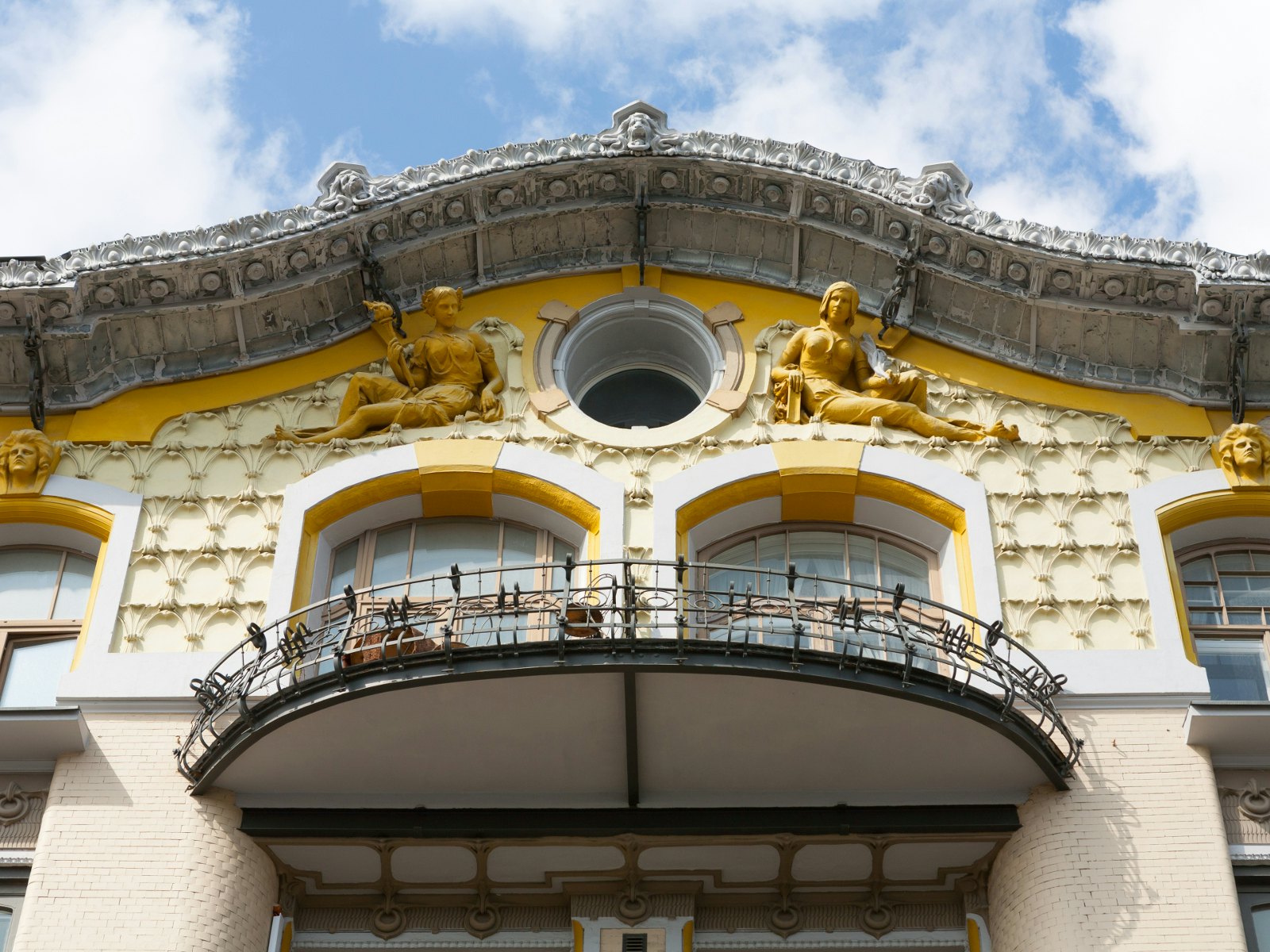
Khamovniki
Khamovniki is Moscow’s ancient textile district, named after the word kham (a type of cloth). Two main thoroughfares, Ostozhenka and Prechistenka, cut through the neighbourhood parallel to each other. The former turned into the so-called ‘Golden Mile’ of Moscow in the 1990s, with the highest real-estate prices and some of the best examples of new Russian architecture, while the latter is still mostly lined up with impressive 19th-century mansions.
Khamovniki is somewhat of a literary quarter, as several museums devoted to Russia’s best-known writers – among them Leo Tolstoy, Alexander Pushkin and Ivan Turgenev – popped up here during the last century. There’s also plenty to see for an art lover. The Multimedia Art Museum regularly hosts exhibitions by some of the best photographers from all over the world, as well as contemporary art. Several galleries, including RuArts and Kournikova Gallery, have also found home in Khamovniki.
When you’ve had your fill of literature and art, stop by Gorod Sad on Ostozhenka, an outpost of a local health-food chain, and order dishes such as pumpkin soup or grilled vegetables salads. Afterwards, head to Dom 12, which is located just off Ostozhenka street. This restaurant and wine bar is frequented by the city’s intellectuals and its schedule includes lectures, book presentations and film screenings, while in the summer guests migrate to a lovely courtyard.
https://shop.lonelyplanet.com/products/moscow-city-guide-7










